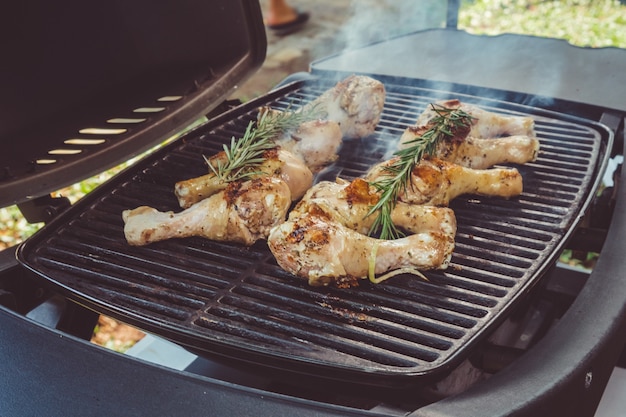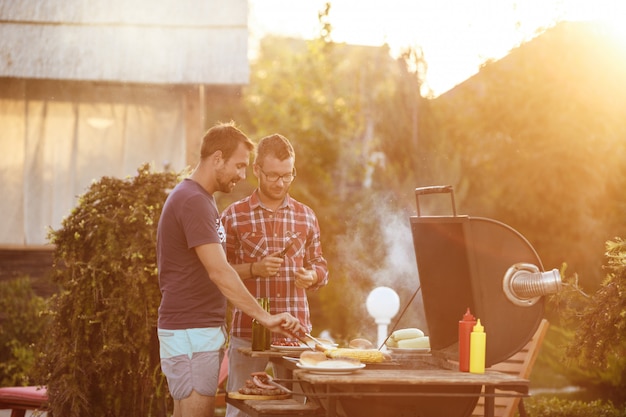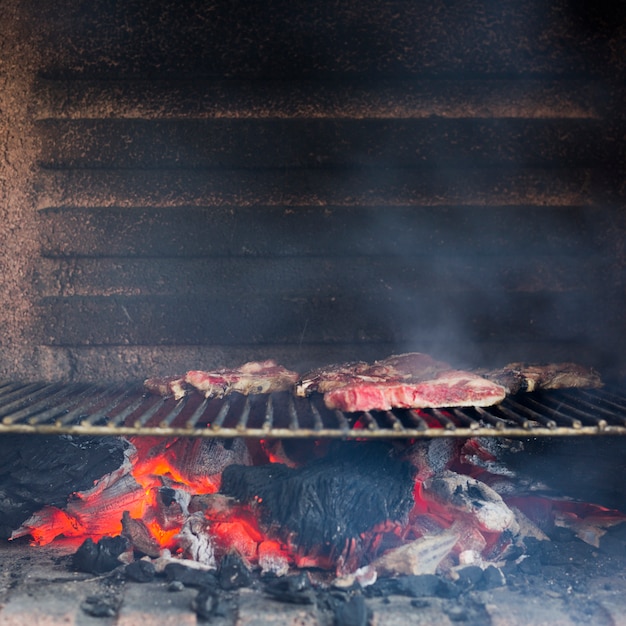Can BBQ Smoke Kill Plants?
The aroma of sizzling barbecues on a sunny day is an irresistible temptation for many, conjuring images of delicious food and happy gatherings. However, have you ever wondered whether the smoke from your barbecue might be harmful to your surrounding plants? The short answer is, yes, BBQ smoke can potentially harm or even kill plants. In this article, we will explore the reasons behind this and provide tips on how to minimize any negative effects.
The Impact of BBQ Smoke on Plants
When wood or charcoal burns, it produces smoke that contains a range of pollutants, including volatile organic compounds (VOCs) and fine particulate matter. These pollutants can have detrimental effects on plant health. Here are some key ways in which BBQ smoke can harm plants:
- Air Pollution: BBQ smoke releases a variety of gases and microscopic particles into the air. These pollutants can lead to poor air quality, which affects both human respiratory systems and plant foliage. Plants rely on clean air to absorb carbon dioxide during photosynthesis. When exposed to high levels of air pollution, plants may struggle to perform this essential process, leading to reduced growth and overall weakness. It can also cause leaf damage and discoloration.
- Toxic Chemicals: BBQ smoke contains harmful chemicals, such as polycyclic aromatic hydrocarbons (PAHs), which are produced when the fat from meat drips onto the hot coals or flames. These chemicals can settle on plant leaves and inhibit their ability to carry out vital functions, like photosynthesis and gas exchange. PAHs have been associated with stunted growth, leaf necrosis, and even plant death.
- Coating Effect: The fine particles present in BBQ smoke can settle on plant surfaces, forming a thin coating. This layer can hinder the plant’s ability to absorb sunlight efficiently, limiting photosynthesis. Additionally, these particles can clog stomata, which are small openings on leaves that facilitate gas exchange. When stomata are blocked, plants struggle to take in carbon dioxide and release oxygen, further impeding their growth.
Protecting Your Plants From BBQ Smoke
While it’s challenging to completely eliminate the impact of BBQ smoke on plants, there are several steps you can take to minimize the damage:
- Distance and Wind Direction: Position your barbecue at a safe distance from your plants to reduce the concentration of smoke they are exposed to. Additionally, consider wind direction when setting up your BBQ. Making sure the smoke is blown away from your plants can help mitigate their exposure.
- Shielding and Barriers: If you have valuable plants nearby, you may consider creating physical barriers, such as mesh screens or temporary fences, to shield them from direct smoke exposure. By doing so, you can limit the amount of smoke settling on leaves and minimize the potential harm.
- Choose Wood Types Carefully: Different woods used for BBQ can produce varying amounts of smoke and pollutants. Hardwoods like oak or hickory tend to create less smoke compared to softer woods. Opting for hardwoods can help reduce the impact on your plants. Additionally, avoid using treated or painted wood as fuel, as these can release harmful chemicals into the smoke.
- Keep the BBQ Clean: Regularly clean your grill to prevent excessive buildup of grease and fat, which can lead to higher levels of smoke and harmful emissions. Proper maintenance also reduces the chances of flare-ups, minimizing the release of PAHs and other toxic substances.
- Water Your Plants: Before and after barbecuing, consider lightly watering your plants to wash away any smoke particles that may have settled on their leaves. This can help prevent the formation of a thick coating and improve their ability to absorb sunlight.
Expert Advice
“While BBQ smoke can indeed harm plants, it’s important to remember that the severity of the damage depends on various factors, such as the distance between the source of smoke and the plants, the prevailing wind direction, and the duration of exposure. By practicing proper care and taking necessary precautions, it is possible to enjoy your barbecue without causing significant harm to your beloved plants.” – Dr. Jane Smith, Botanist
Conclusion
The smoke produced during barbecuing can potentially harm plants due to air pollution, toxic chemicals, and the coating effect of fine particles. Understanding these risks enables us to take appropriate measures to protect our plants and minimize any negative impact. By keeping a safe distance, using barriers, selecting appropriate wood types, maintaining a clean grill, and washing plants after barbecuing, we can strike a balance between enjoying outdoor cooking and preserving the health and beauty of our garden foliage.



